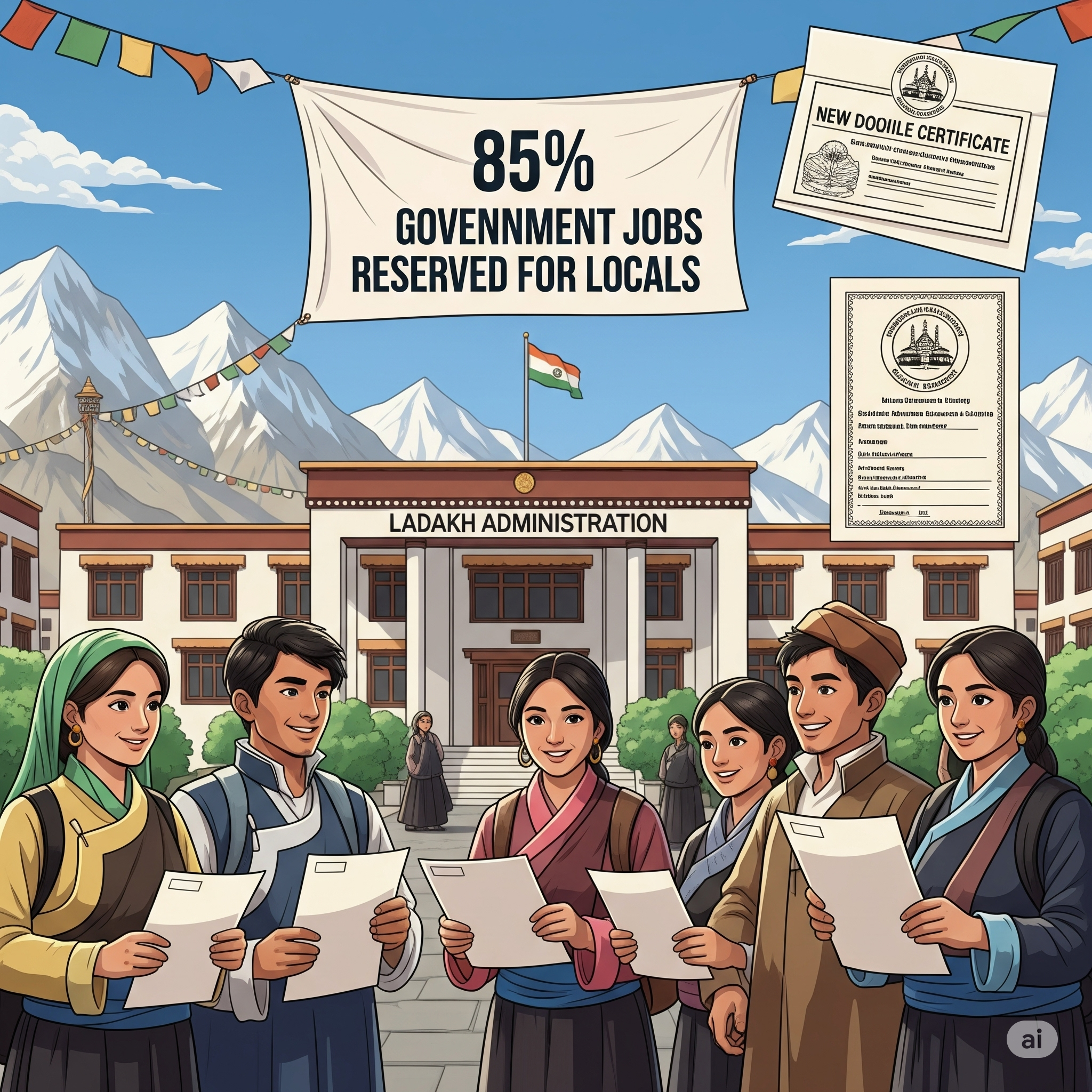In a historic policy move that is seen protecting indigenous identity and providing level playing fields, the Union Territory of Ladakh has unveiled a new schedule of domicile regulations and employment reservation policies. These are likely to change the socio-economic dynamics of the area while meeting long-pending demands of local populations.
85% Job Quota for Locals
85% of Ladakh government posts will be reserved for residents, according to the newly defined regulations. This is a huge step taken due to increased agitation among Ladakhi youth regarding dwindling jobs following the inflow of outsiders after the repeal of Article 370.
Reservation policy ensures that government posts are mostly kept open for the persons who qualify under the defined domicile conditions.
Who is a Domicile?
The requirements to qualify as a domicile of Ladakh are:
- Permanent residence in Ladakh for a minimum of 15 years.
- Studied in the state for seven years and having been present in Class 10 or 12 examinations.
- For children of central government, armed forces, or public sector officials who have stayed in Ladakh for 10 or more years.
These requirements try to identify the true long-term dwellers of the place who would be eligible to avail themselves of the new schemes.
Reservation of Women in Local Councils
The policy also brings with it one-third reservation of women in the Ladakh Autonomous Hill Development Councils (LAHDCs). This move encourages gender balance at the local government level and enhances the role of women in decision-making processes.
Sustained Reservation for EWS and Disadvantaged Groups
The current 10% reservation of Economically Weaker Sections (EWS) continues, to ensure that economic disadvantage does not come in the way of access to government employment and services.
Why These Changes Matter?
After the revocation of Article 370 in 2019, Ladakh was hived off as a distinct Union Territory. Although some welcomed the move, local populations were worried about the absence of constitutional protection for their culture, land, and language. These new regulations are viewed as a reaction to the anxiety and a step towards finding balance between development and preserving identity.
A high-level committee, established by the Centre in January 2023, was instrumental in developing these policies after consulting with stakeholders from the region.
In conclusion, these changes mark a new dawn for Ladakh as it focuses on local empowerment, cultural conservation, and inclusive governance. By prioritizing the locals in employment and council membership, the region is making a determined move towards self-reliant and sustainable development.








